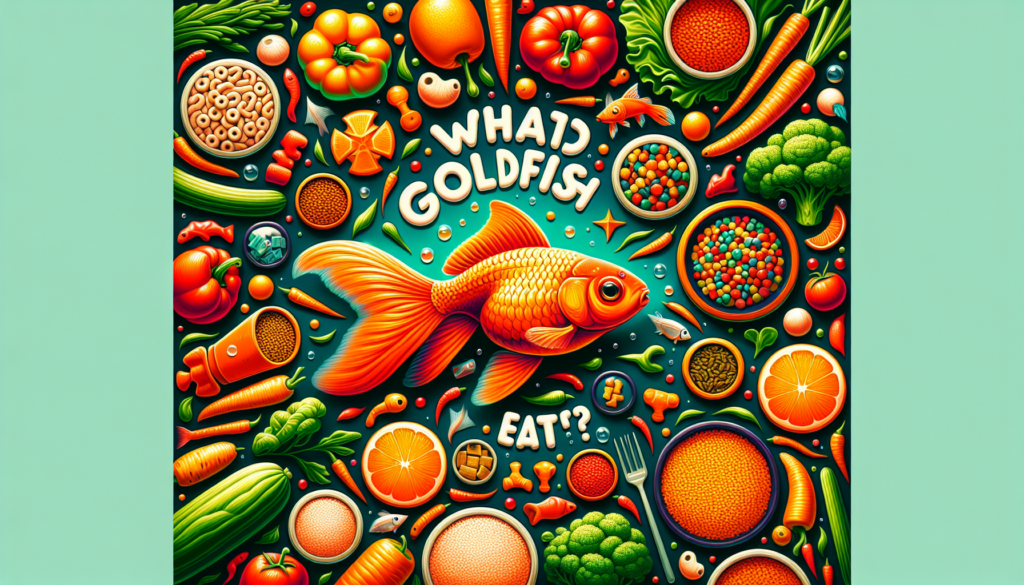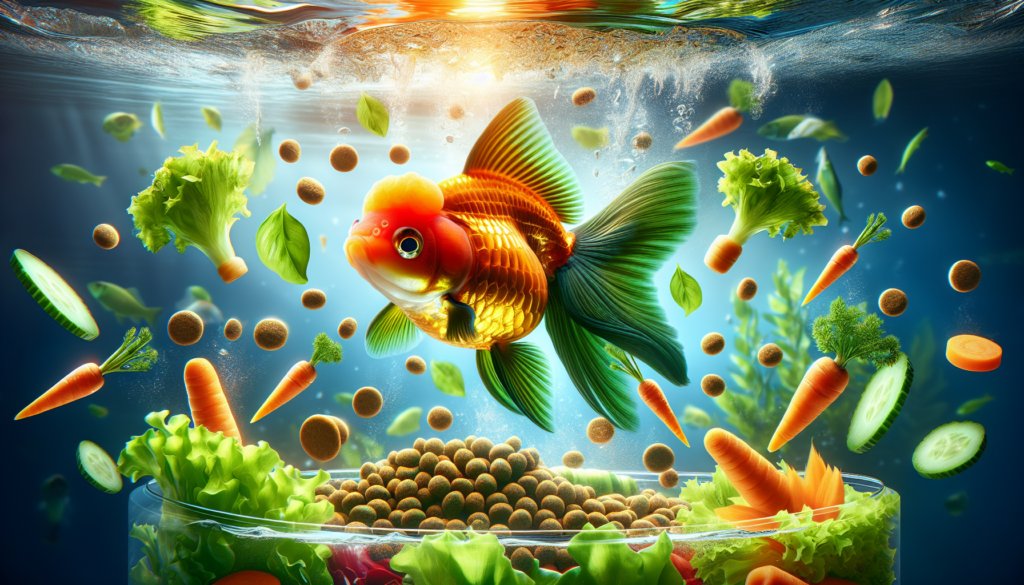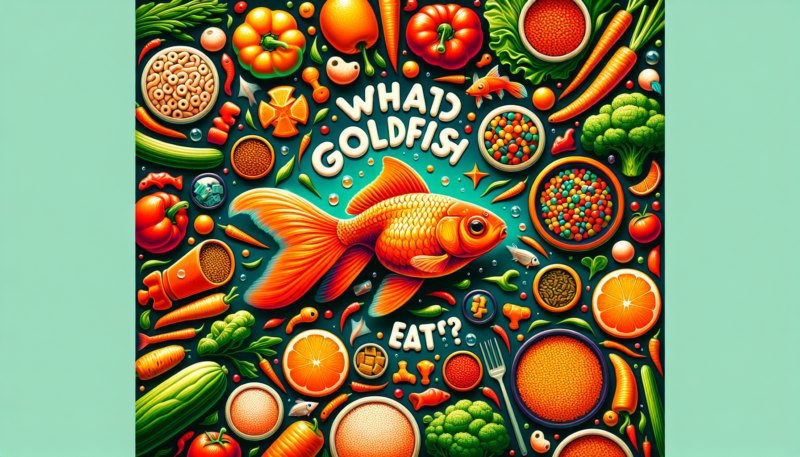Are you a proud new owner of a goldfish and wondering what to feed your colorful little friend? Well, fret no more, because in this article, we will explore the dietary needs of goldfish and provide you with some helpful tips on what they should eat. Whether you’ve just acquired a goldfish or have been taking care of one for years, understanding their nutritional requirements is essential for their overall health and well-being. So, let’s dive in and discover what should be on your goldfish’s menu!
What Should Goldfish Eat?
Goldfish are delightful and low-maintenance pets that bring joy to both children and adults alike. As responsible owners, it is our duty to ensure they have a healthy and balanced diet. Feeding your goldfish the right amount and type of food is crucial for their overall well-being. In this article, we will explore the natural diet of goldfish, the importance of commercial goldfish food, factors to consider when choosing their diet, and various types of foods that are beneficial for their growth and health.
Natural Diet of Goldfish
In their natural habitat, goldfish are omnivorous creatures, which means they consume both plant matter and small marine organisms. They have a fondness for algae, small insects, insect larvae, and even small crustaceans. These natural food sources provide them with essential nutrients and keep them healthy. Therefore, it is important to mimic this natural diet as closely as possible when feeding goldfish in captivity.
Commercial Goldfish Food
Commercial goldfish food is specifically formulated to meet the nutritional needs of these beautiful creatures. They come in various forms such as flakes, pellets, and granules, making it easy to choose the right type for your goldfish. These foods are often enriched with vitamins, minerals, and essential fatty acids, ensuring a well-balanced diet. High-quality commercial goldfish food should contain easily digestible proteins, minimal fillers, and should be free from artificial colors and preservatives.

Factors to Consider
When selecting the diet for your goldfish, it is important to consider some key factors. The age of your goldfish plays a significant role in determining its dietary requirements. Young goldfish need a higher protein intake to support their rapid growth, while older goldfish require a diet with lower protein levels to maintain their health. The size of the pellets or flakes you choose should also be suitable for your goldfish’s mouth. It is important for them to be able to consume their food comfortably.
Protein Intake
Protein is an essential component of a goldfish’s diet, as it aids in growth, muscle development, and overall health. High-quality fishmeal and other sources of animal protein should be included in their diet. However, it is important to ensure that the protein content is not excessive, as it can lead to health issues such as swim bladder problems. Moderation is key when it comes to protein intake for goldfish.

Vegetables and Greens
Adding vegetables and greens to your goldfish’s diet is highly beneficial. Leafy greens like lettuce (avoid iceberg lettuce), spinach, and kale are rich in vitamins and minerals. These can be blanched or finely chopped before feeding. Peas, both fresh or frozen, can also be included as they act as a natural laxative, aiding in digestion for goldfish. Other suitable vegetables include zucchini, cucumber, and broccoli, as they provide additional nutrients and fiber.
Fruits
While goldfish predominantly consume plant-based foods, some fruits can be included as occasional treats. Slices of oranges, watermelon, and strawberries make for delightful and nutritious treats for your goldfish. Ensure that the fruits are rinsed thoroughly and cut into appropriate sizes to prevent choking hazards. Fruits should be given in moderation to avoid overdoing the sugar intake.
Live Foods
Live foods, such as daphnia, brine shrimp, and bloodworms, are excellent sources of protein and nutrients for goldfish. These foods mimic their natural diet and provide additional enrichment for their mental and physical well-being. Live foods can be purchased from pet stores or even cultured at home. It is important to provide live foods as treats and not as the primary diet, as they can carry parasites or bacteria if not handled properly.
Freeze-Dried Foods
Freeze-dried foods are a convenient and nutritious option to include in your goldfish’s diet. They retain most of their nutritional value while being easy to store and handle. Freeze-dried bloodworms, daphnia, and brine shrimp are popular choices that can be fed as occasional treats or as a supplement to their regular diet. Soaking the freeze-dried foods in water before feeding can help prevent digestive issues.
Supplementary Foods
In addition to the staple diet of commercial goldfish food, it is important to provide supplementary foods to promote a varied and enriching diet. These can include blanched and crushed peas, boiled eggs (mashed and without seasonings), and commercially available fish treats. These supplementary foods provide additional nutrients and ensure that your goldfish’s diet is well-rounded.
Feeding Frequency
Maintaining the right feeding frequency is crucial to avoid overfeeding and related health problems in goldfish. As a general rule of thumb, it is recommended to feed them small portions multiple times a day, rather than a single large meal. This approach mimics their natural grazing behavior. However, be mindful not to overfeed, as uneaten food can pollute the water and cause water quality issues. Monitor your goldfish’s behavior and adjust the feeding frequency accordingly.
In conclusion, providing your goldfish with a well-balanced and varied diet is essential for their overall health and happiness. By understanding their natural diet, incorporating commercial goldfish food, considering key factors, and including a variety of foods in their diet, you can ensure that your goldfish thrives. Remember to maintain a proper feeding frequency and always observe your goldfish’s behavior and health to make any necessary adjustments. With a nutritious diet, your goldfish will continue to bring joy to your life for years to come.
